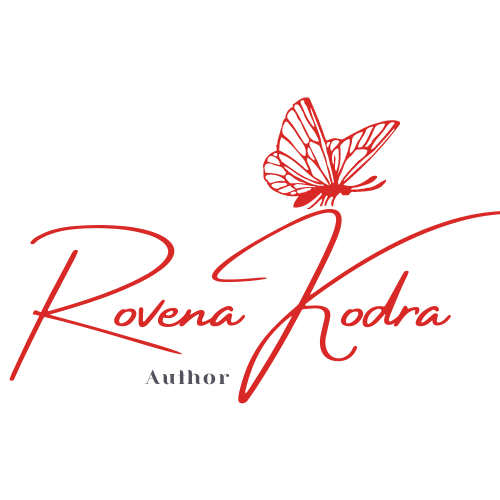When We Parent in Opposition: A Call for Self-Evaluation
Parenting in Opposition: The Hidden Trap of “Not Becoming Like Them”
Often, as parents, we reflect on our own childhood experiences and begin sorting through what we liked and disliked about how we were raised. We tell ourselves: "I’ll never speak to my child the way my father spoke to me." Or, "I want to give my child the freedom I never had."
We reflect on our childhood with a magnifying lens—pinpointing the moments that caused pain, shame, fear, or confusion. We vow to do better. To speak more gently. To give more freedom. To allow more space.
We start parenting with a mental list—what to keep and what to reject from our own upbringing. It seems clear. Conscious. Thoughtful. But there’s one hidden challenge:
We tend to remind ourselves of those likes and dislikes while we’re parenting, not before. And by then, we’re already reacting. When our parenting is shaped more by what we want to avoid than by what we consciously choose, we’re parenting in opposition, not from awareness—but from reaction.
We often don’t realise that some of the very behaviours we disliked are still living in us—unquestioned, unhealed, and active. They slip into our tone. Our boundaries. Our moments of impatience.
And then, something happens: our child reacts in a way that mirrors our old pain.
Suddenly, we see our younger selves reflected back—hurt, confused, or silenced. And we rush to correct it. Not just because we care for our child, but because it reawakens something in us.
We’re not just trying to protect them. We’re trying to fix something we haven’t fully faced.
We may say, “I want to be nothing like my parents,” but unconsciously, we’re still parenting with their voice in our heads—either repeating it… or resisting it without clarity.
And resistance, just like repetition, can create dysfunction.
The Psychological Impact on Children
When we parent as a reaction to our past, we create inconsistencies that our children feel—but don’t understand.
1. Emotional Inconsistency
Children thrive on predictability. But if our parenting swings between extremes—too permissive one day, too rigid the next—they begin to feel emotionally unsafe. They don’t know what to expect.
This creates:
Anxiety
Hypervigilance
Difficulty regulating their own emotions
2. Parentification
Sometimes, a child senses their parent is emotionally triggered by something they said or did—but the real trigger is rooted in the parent’s past.
So the child begins to:
Walk on eggshells
Take responsibility for their parent’s emotional state
Silence their own needs
This is how parentification begins—when a child becomes the emotional adult in the relationship.
3. Loss of Identity or Direction
When parents are unclear or conflicted—flip-flopping between what they’re avoiding and what they’re trying to create—children receive mixed messages.
They may:
Struggle to understand rules or boundaries
Feel unsure of who they’re “supposed to be”
Lack confidence in making decisions
They grow up searching for structure outside of themselves—because they didn’t learn how to build it within.
So What Can We Do?
Most of the time, we don’t realise we’re doing this. We think we’re doing better, and in many ways we are.
But the real growth comes when we self-reflect—not just on our parents’ choices, but on our own behaviour today.
We ask:
Am I parenting from clarity, or from fear?
Am I reacting to my child, or to my past?
Is this boundary I’m setting rooted in love, or in avoiding the pain I once felt?
When we don’t pause to evaluate this, we pass the same emotional burden onto our children—just wrapped in different packaging.
Self-evaluation doesn’t mean blaming ourselves. It means giving ourselves the compassion and honesty we needed as children, so we can finally pass that on.
How to Shift from Reaction to Intention
Here are a few ways parents can begin to shift their parenting from reactive to intentional:
1. Self-Evaluation Before Correction
Before correcting your child’s behaviour, ask:
“What am I feeling right now? Where is this reaction coming from?”
This helps separate your child’s behaviour from your own emotional history.
2. Process the Past
You can’t fully choose a new way of parenting if you're still entangled with the old.
Explore:
Your beliefs about respect, discipline, freedom, and love
Where those beliefs come from
Whether they still serve you
Therapy, journaling, coaching, and reflective conversations can help.
3. Set Intentions, Not Reactions
Instead of saying, “I’ll never do what they did,” try asking:
“What kind of parent do I want to be, and why?”
Build a parenting model around values and vision, not just avoidance.
4. Apologise When You React From Your Past
This models humility, honesty, and emotional responsibility.
Saying “That wasn’t about you. I’m working on something inside me” gives your child both clarity and safety.
In Closing: The Invitation
Parenting isn’t about becoming the opposite of our parents.
It’s about becoming more aware of who we are, and what we’re carrying that no longer serves us—or our children.
When we heal from reaction, we stop passing on unprocessed pain.
We give our children something we may have never fully received:
Consistency
Clarity
And the safety of a parent who’s emotionally present, not emotionally entangled
This isn’t about perfection.
It’s about pausing, reflecting, and choosing.
Not just for our children—but for ourselves.

